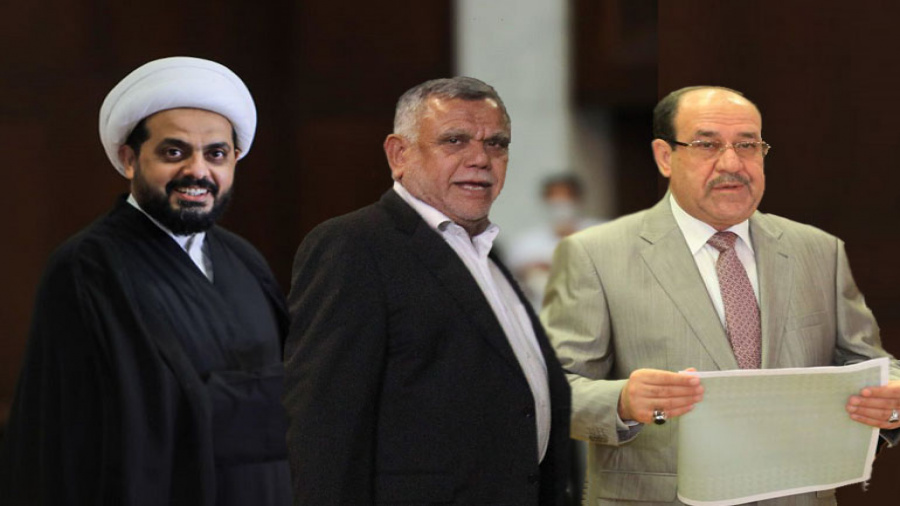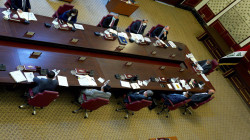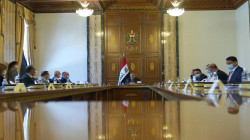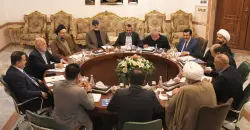Coordination Framework: the next few days are decisive to the government formation

Shafaq News/ The leading figure in the Coordination Framework, a consortium of Iraqi Shiite political forces opposing the October 10 election results, said that the next couple of days will be decisive to the formation of the Iraqi government.
Ali al-Fatlawi, member of Nouri Al-Maliki's State of Law Coalition, said in a statement to Shafaq News Agency, "the next few days will be decisive to the process of the cabinet assembly. It will reveal polarization of the governance, who will be in the government and who will be in the opposition."
"Vital dialogues will be commenced in few hours. Those talks will have the final word," he said, "the Coordination Framework is irrevocably adamant about joining the government undiminished."
On February 9, the Coordination Framework forced an initiative to resolve the ongoing deadlock impeding the progress of the government formation.
The initiative was preceded by an attempt by the Kurdish leader, Masoud Barzani, during the visit of the president of the Kurdistan Region Nechirvan Barzani, Iraqi Parliament Speaker Mohammad al-Halboosi, and the head of al-Siyada Coalition Khamis al-Khanjar to al-Hannana, the headquarters of the Sadrist leader Muqtada al-Sadr.
According to a source close to al-Sadr, the Shiite cleric is "unflinchingly" adamant about precluding the head of the State of Law bloc, Nouri al-Maliki, from the federal cabinet calculus "no matter how fierce Iran's pressure is".
The bloc of the firebrand Shiite cleric, already the biggest in the October 10 election, has been mobilizing impetus behind a "National Majority Government", challenging the status quo "consensus governments", the forces of the Shiite Coordination Framework have been lobbying for.
al-Sadr has said he will ally himself with whoever puts Iraq's national interests first. That is an indication, that he may exclude some Iran-backed Shiite blocs in favor of parties with cross-sectarian support.
Later, al-Sadr demonstrated a less defiant tone against the Coordination Framework parties but maintained a hardcore position from al-Maliki.
"We are proceeding with the formation of the national majority government and our door is open for some of those we still think well of," he said last month, referring to other members of the Coordination Framework.
The source close to al-Hannana said on Wednesday that the Sadrist leader would rather put the "National Majority Government" on hold for another four years than allow al-Maliki to take part in it.
"It is a irrevocable decision," the source said.
"Pressures, from Iran and other influential actors, are being exerted on al-Sadr to form a government that brings together all the political forces, including al-Maliki and his bloc, but he refused. Al-Sadr was adamant about it during his meeting with Qa'ani, the commander of Iran's elite Quds Force. He asserted that would rather convert to the opposition than share the cabinet with al-Maliki."
According to sources familiar with yesterday's meeting between al-Sadr and Qa'ani, the Iranian commander handed al-Sadr a letter from Iran's Supreme Leader, Ali Khamenei, urging under him to "maintain the unity of the Shiite home at any costs."
Al-Sadr, according to the sources, responded that he will proceed with the "National Majority Government" with the participation of the Coordination Framework parties, except for al-Maliki, whom Khamenei deems unexpendable.
The long-running dispute between al-Sadr and al-Maliki is one of the main obstacles to any deal that might resolve the situation in Iraq, as the former blames the latter for the endemic corruption and security failure during his two consecutive terms as a Prime Minister. Their enmity dates back to 2008, when al-Maliki launched a military operation against al-Mahdi Army, the disbanded militia formerly led by al-Sadr.





